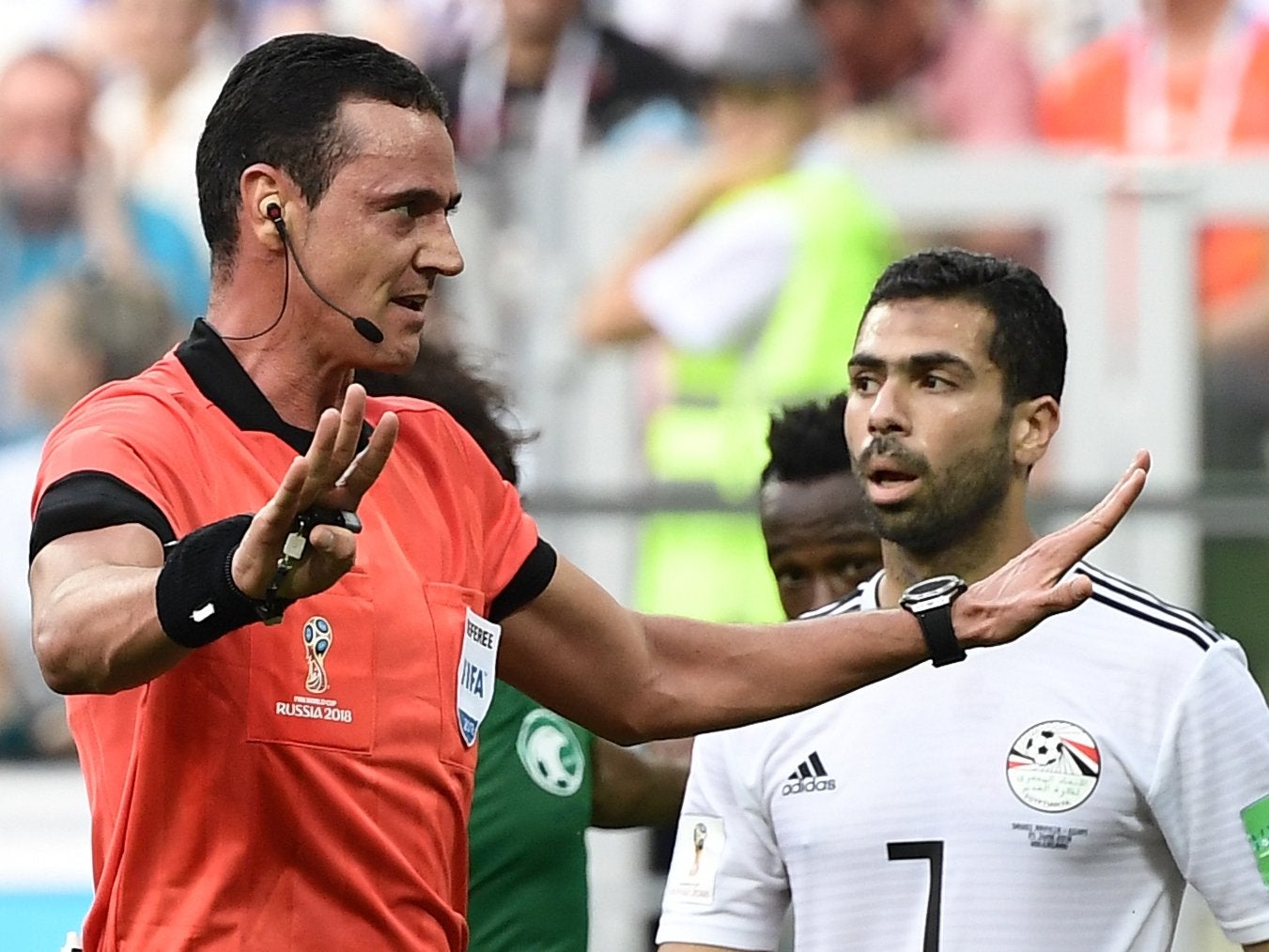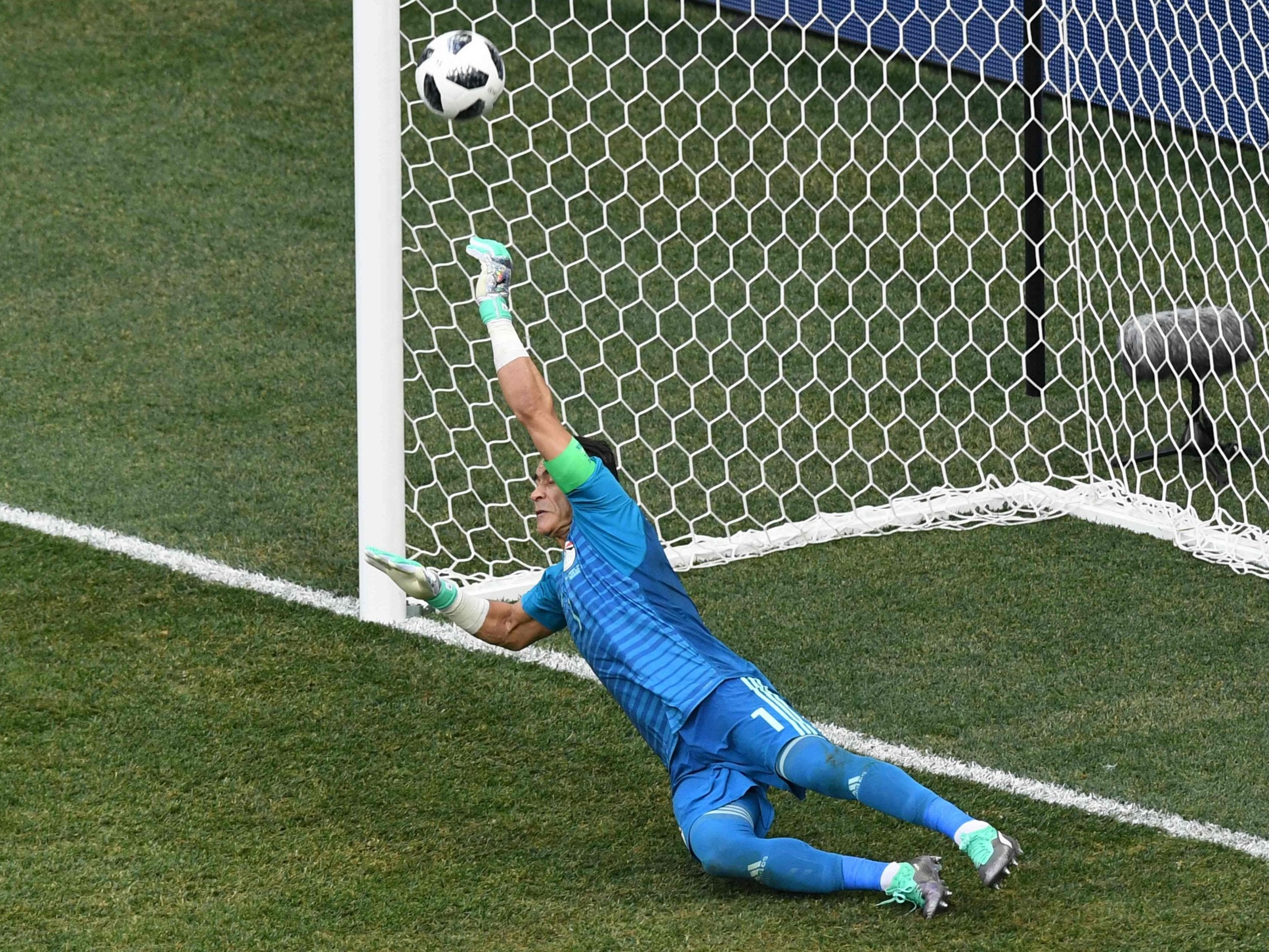Saudi Arabia vs Egypt: VAR controversy, two penalties and the oldest ever player - how 12 crazy minutes defined a match
Essam El-Hadary knew he would become the World Cup’s oldest ever player by start the Group A dead rubber, but he had no idea how important he’d be in the match
Egypt Football’s final Group A match at the World Cup 2018 against Saudi Arabia descended into chaos as not one but two penalties to tie the record for the most awarded at a World Cup.
The match, taking place in Volgograd, already proved to be record-breaking as Egyptian goalkeeper Essam El-Hadary became the oldest player in World Cup history by starting the match.
Yet after Mohamed Salah put Egypt ahead in the 22nd minute – albeit without celebrating as reports over his happiness in the international set-up continue to circulate – El-Hadary was called upon for his country when Ahmed Fathy was found to have handballed in the penalty area.
Referee Wilmar Roldan pointed straight to the spot, only for El-Hadary to make himself a hero and save the shot onto the crossbar and clear to safety.
Yet in what transpired to be a strange sequence of events, El-Hadary was back on his line facing another, separate penalty just six minutes later – or so we thought.
Roldan again pointed to the spot, this time for Ali Gabr pulling down Fahad Al Muwallad, but following an intense protest from the Egyptian players the referee consulted his Video Assistant Referee [VAR] before deciding to review the incident.
As the seconds, minutes and what felt like hours ticked by, it felt inevitable that the penalty would be overturned. But five minutes into the original three minutes added on, Roldan finally returned to the pitch to point to the spot and stick with his decision – albeit issuing a subsequent yellow card to Gabr for the foul.

To say that the punishment was harsh was an understatement, given that video replays showed Al Muwallas to have a hold of Gabr’s shirt as he fell softly to the turf, but Roldan was convinced that the challenge warranted a penalty kick.
Here’s how the madness unfolded:
- 39' - penalty conceded by Ahmed Fathy (handball)
- 41' - Fahad Al Muwallad's penalty saved by Essam El Hadary
- 45+2' - penalty conceded by Ali Gabr for foul on Fahad Al Muwallad
- 45+5' - Gabr booked
- 45+6' - Salman Al Faraj scores penalty
It capped a bizarre 12 minutes that saw records broken, penalties saved and penalties scored – and all with another 45 minutes left to play.

Yet one other record that was matched saw the number of penalties awarded at this World Cup equal the existing record of 2002, with the two penalties to Egypt taking the total to 18 with the remainder of the third round of group games to play and the entire knockout section of the tournament.
Join our commenting forum
Join thought-provoking conversations, follow other Independent readers and see their replies
Comments
Bookmark popover
Removed from bookmarks